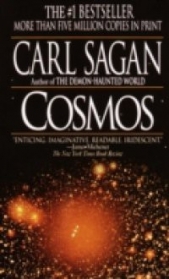Образ человека будущего, Том 7 (СИ)

Образ человека будущего, Том 7 (СИ) читать книгу онлайн
На основе предшествующих трех монографий Международное философско-космологическое общество начало выпуск научного журнала Future Human Image, в котором представлены современные мировые исследования образа человека будущего. Журнал охватывает области нейронаук, педагогики, философии образования и психологии. В данном выпуске представлены работы специалистов из США, России, Украины, Бразилии, Южной Африки, Испании, Казахстана. Журнал публикует исследования на русском, английском и украинском языках
Внимание! Книга может содержать контент только для совершеннолетних. Для несовершеннолетних чтение данного контента СТРОГО ЗАПРЕЩЕНО! Если в книге присутствует наличие пропаганды ЛГБТ и другого, запрещенного контента - просьба написать на почту [email protected] для удаления материала
25-33.
Bazaluk, Oleg, and Tamara Blazhevich. Cosmic Education: Formation of a Planetary and Cosmic personality. In Philosophy and Cosmology. Volume 11, 2013: 147-160.
Botkin, James, Mahdi Elmanjra, and Mirchea Malitza. No Limits to Learning. Bridging the human gap. A Report to the Club of Rome. Oxford etc.: Pergamon press, 1979.
Colin, Konstantin, and Arkady Ursul. Information and Culture. Introduction to information cultural studies. Moscow: Strategic priorities, 2015.
Coombs, Philip. The World Education Crisis. Systems Analysis. Oxford University Press, 1968. Coombs, Philip. The World Crisis in Education: the View from the Eighties. Oxford University
Press, 1985.
Education: hidden treasure. Paris, UNESCO, 1998.
Environmental education and sustainable development. Edited by Arkady Ursul. Moscow: Luch, 1996.
Education for sustainable development. Edited by Nikolay Casimov, Moscow-Smolensk: Universum, 2004.
Evolutionary metaparadigm: opportunities, problems and prospects. Evolution. Edited by Leonid Grinin, Alexander Markov, and Andrey Korotaev. Moscow: Uchitel, 2009.
Henvi, Robert. An Attainable Global Perspective. Ryazan: Ryazan state pedagogical University, 1994.
Ilyin, Ilya, Arkady Ursul, and Tatiana Ursul. Globalistics and Global Education: an Evolutionary
Approach. Global processes and sustainable development. Moscow: RGTU, 2011.
152 Future Human Image. Volume 7, 2017
Education and Globalistics by Arkady Ursul and Tatiana Ursul
Ilyin, Ilya, Arkady Ursul, and Tatiana Ursul. Global Sustainаbility. Prospects for a safer future.
Saarbrücken: Dictus Publishing, 2015.
Ilyin, Ilya, Arkady Ursul, and Tatiana Ursul. Global Evolutionism: Ideas, Problems and Hypotheses. Moscow: Publisher Moscow University, 2012.
Ivanitsky, Aleksey. Natural sciences and problems of consciousness. In Herald of the RAS. Vol. 74. No. 8, 2004: 716-728.
Liferov, Anatoliy. Global Education - the Way to Integration of World Education. Moscow:
Slavyansk School, 1997.
Liferov, Anatoliy. Integration trends in global education. In Pedagogics, 6, 2009: 34-42. Polischuk, Natalia. Space Human Activity and Education of Spiritual Persons of Space Other
Planetary. Future in the Third Millennium. In Future Human Image. Volume 4, 2014:
96-101.
Stepanov, Stanislav. Globalization, sustainable development, education. Conceptual foundations of environmental education in higher education for sustainable development.
Moscow: MNEPU, 2009.
Tikhomirov, Vladimir. Smart Education - new opportunities for development in the information society. Information and scientific outlook. Moscow: Russian School Library Association, 2013.
UNECE Strategy for education for sustainable development. Moscow: UN Information Centre, 2005.
Ursul, Arkady. Sustainable development of civilization and education in the 21st century. In
Green cross. 4, 1995: 12-26.
Ursul, Arkady. Sustainable development strategy: futurization science and education. In Alma mater, Herald of High school. 3, 2005: 45-53.
Ursul, Arkady. The principle of temporal integrity and innovative education. In Alma matter, Herald of high school. 2, 2008a: 34-43.
Ursul, Arkady. Education for sustainable development: futurization and innovative and forward-looking processes. In Open education. 2, 2008b: 32-41.
Ursul, Arkady. Prospects in the 21st century: global - evolutionary approach. In E & M smart education. International scientific journal for the European intellectual elite. 1, 2012: 32-
40.
Ursul, Arkady. Рhenomenon of the noosphere: Global evolution and noospherogenesis.
Moscow: Lenand, 2015.
Ursul, Arkady, and Tatiana Ursul. Formation of noosphere sciences and sustainable development. In Security of Eurasia. 4, 2004: 79-94.
Ursul, Arkady, and Tatiana Ursul. Evolutionary paradigm and model of education of 21st century. In NB: Pedagogics and education. 1, 2012: 1-67.
Ursul, Arkady, and Tatiana Ursul. Megatrends Evolution of Education of the Third Millennium. In Future Human Image. Volume 3, 2013a: 39-97.
Ursul, Arkady, and Tatiana Ursul. Education as an information process and prospects for its futurization. In NB: Pedagogics and education. 2, 2013b: 41-65.
Vernadsky, Vladimir. Scientific Thought as a Planetary Phenomenon. Moscow: Nauka, 1991. Vernadsky, Vladimir. Journalistic Articles. Moscow: Nauka, 1995.
Vernadsky, Vladimir. The Biosphere and the Noosphere. Moscow: Nauka, 2004.
Future Human Image. Volume 7, 2017 153
Philosophical Reflection Smart-Society as a New
Model of the Information Society and its Impact on the Education of the 21st Century
Valentina Voronkova - Doctor of Philosophy, Professor
Zaporizhzhya State Engineering Academy
(Zaporozhe, Ukraine)
E-mail: [email protected]
Olga Kyvliuk - Doctor of Philosophy, Senior Research Fellow
National Pedagogical Dragomanov University
(Kyiv, Ukraine)
E-mail: [email protected]
This article presents philosophical and educational reflection of smart-society as a new model of the information society and presents its impact on human (intellectual) capital. It reveals timeliness of this topic, which is innovative and hardly developed. It analyses international experience in establishment and growth of smart-society and dimensions of axiological field of smart-society, which is based on axiological matrix of information and knowledge, which are considered and being civilized dimensions of modern society. The main idea is to prove the evolution of the information society to smart-society and the possibility of establishment of smart-society in Ukraine. The analysis of smart-society formation was made and its characteristics were defined, which claims priority role in the world information space formation and contribute to the competitiveness of Ukraine in the international information space.























